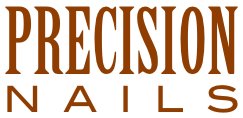Article Published in Stylist Magazine, March 2012
Observing yet another quarterly meeting of California’s Board of Barbering and Cosmetology (BBC), I can’t help but have some strong opinions. After all, the issues being addressed in this particular meeting, like health and safety regulations, enforcement procedures and unlicensed activity, directly affect how I do business. Other members of the audience have their own opinions, and that’s one of the main advantages of being at this meeting: the opportunity to share our opinions on the record. In California, the BBC must hold public meetings to facilitate transparency and accountability. To make the meetings even more accessible, they’re simultaneously webcast and later archived on the BBC website. That means I could watch the proceedings from the comfort of my home, even months later. Instead, I choose to be present, no matter what’s on the agenda or how far I must travel. Even when I don’t speak on the record, my presence at these meetings demonstrates my commitment to fair and reasonable governance.
Those unfamiliar with state regulatory agencies may be disappointed to learn that it’s not the government’s responsibility to promote our profession. We have national organizations for that purpose, chiefly the Professional Beauty Association (PBA) which also encompasses the National Cosmetology Association (NCA). As worthwhile as these organizations are, their resources and influence on state governments are limited. It would be different if there were national standards, testing and licensure, but that’s not the case. The fact is individual states protect consumers by regulating us, state by state. To influence how that’s accomplished, we need more salon owners and licensees to participate at the state level, rather than depend on others to advocate for us. We know protecting consumers and promoting our profession are mutually beneficial, rather than exclusive, goals. It only makes sense because strong consumer protection validates our education, licensure and the enforcement of rules and regulations, especially those dealing with health and safety. Who better to protect our interests as beauty professionals, taxpayers, consumers and residents in our respective states than ourselves?
Over the years, I’ve heard so many complaints about inadequate training, outdated exams, incompetent licensees, infrequent inspections, unfair competition, etc., it makes me wonder if any state board does its job well? If not, why bother with licensing at all? Apparently, others have asked the same question and determined that it wasn’t necessary. Recent proposals in Florida, Indiana and New Hampshire to deregulate the beauty profession have prompted professionals to react vehemently to protect their licensing. While that’s encouraging, it’s not enough. To be a more powerful influence on state government, our involvement should be lasting and proactive, not temporary and reactive. If the powers that be only see and/or hear from professionals under the most extreme circumstances, it diminishes our potential impact. Rather than merely complain, consider what you could do to help your board improve. We could accomplish so much more working collaboratively with our state boards, expressing our support or criticism appropriately and respectfully.
Building a collaborative relationship with your state board begins with reaching out. The internet makes this easy; there are numerous online resources to learn out about upcoming meetings, proposed regulations and other opportunities to contribute, like being a subject matter expert or serving on an advisory committee. Your professional expertise can help your board develop and implement better policies.
Interacting directly with board members and staff will give you perspective on current policies, and the reasoning and history behind them, whether you agree or not. I have concerns (some minor, others major) about nearly every aspect of my state board’s purview: scope of practice, health and safety, curriculum, beauty schools, written and practical examinations, licensing fees, booth rental, inspections, enforcement and continuing education. There’s plenty of room for improvement, but policies evolve at a much slower pace than our industry does. The constraints (financial, legal, political, etc.) under which state boards operate limit their ability to change. For example, in California, we desperately need more salon inspectors and support staff, and have the money to fund these positions, but a hiring freeze imposed by our governor makes that difficult, if not impossible, at this time.
If we must be regulated, I demand to be regulated fairly and reasonably. For your individual awareness and our collective interests, I encourage you to learn more about the legislative issues affecting our profession. Write directly to the executive officer of your board, the agency overseeing your board, your state legislators and your governor. Attend board meetings and volunteer. Share your concerns and suggestions with other beauty professionals through networking, trade publications and social media. Discuss your involvement with your clients; these are the consumers your board is supposed to protect. For me, advocacy means expressing my opinions judiciously, supported with facts, no matter how unpopular or contradictory to current policy. My opinion counts, as does yours. Advocacy is your right; please use it, wisely.
By Jaime Schrabeck, Ph.D.
Welcome to the Precision Nails Blog
As a salon owner and licensed manicurist, my perspective on the nail industry could not be more practical. While some may be offended by the opinions expressed, please understand that I want to share information and stimulate discussion. Whether you want your nails done or do nails professionally, I hope you find this blog both useful and interesting.
Jaime Schrabeck, Ph.D.
Materials on this website may not be reproduced, redistributed, transmitted, copied, cached, or otherwise used, without prior written consent of Jaime Schrabeck. To request consent, contact Jaime at consulting@precisionnails.com.
Jaime Schrabeck, Ph.D.
Tuesday, April 3, 2012
Subscribe to:
Post Comments (Atom)





No comments:
Post a Comment